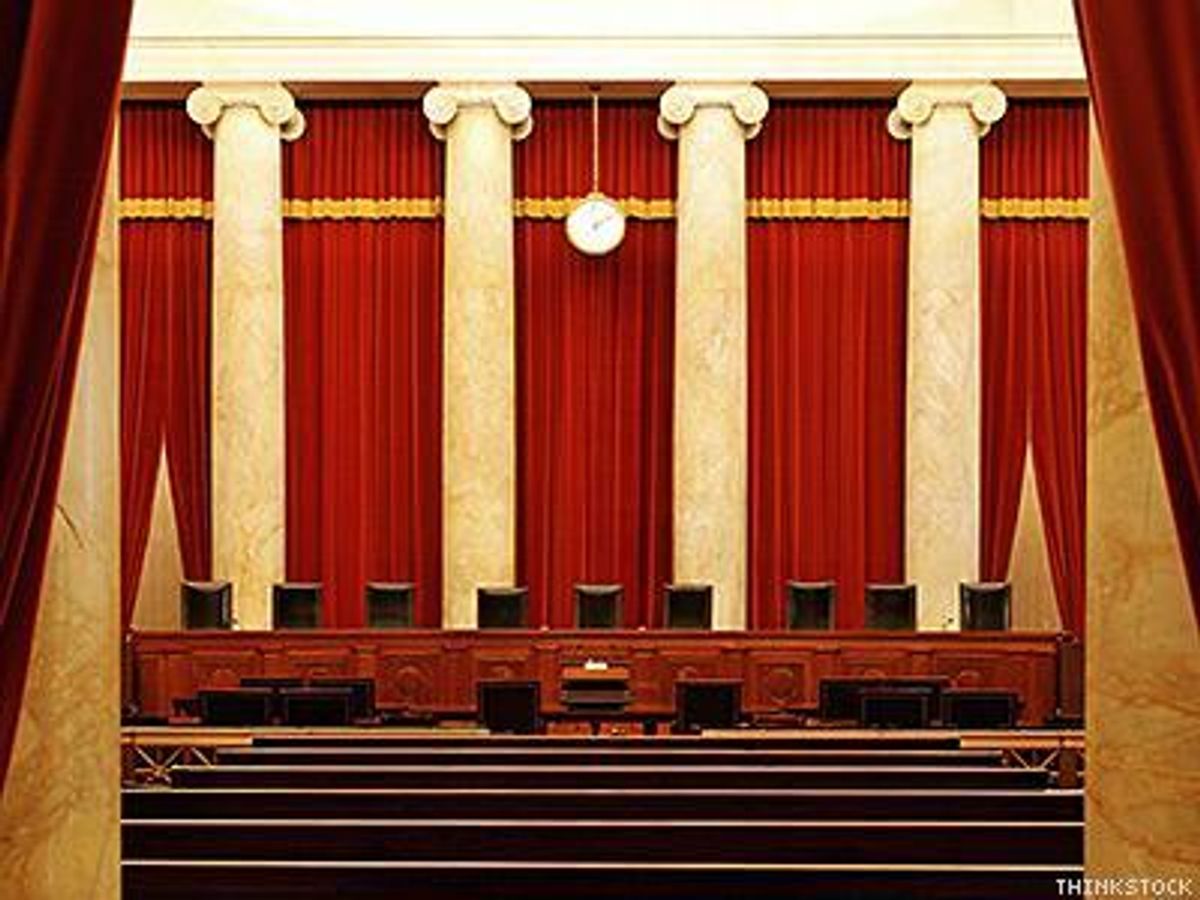With a U.S. Supreme Court ruling on marriage equality due by the end of the month, President Obama and his administration are apparently optimistic that the decision will be a favorable one -- they're not making plans on how to handle a negative ruling, the Washington Blade reports.
In Monday's White House press briefing, the Blade asked press secretary Josh Earnest if the administration was planning how to handle issues surrounding federal spousal benefits if the court upholds state bans on same-sex marriage.
"At this point, we continue to have a lot of confidence in the legal arguments presented by the solicitor general with regard to this matter, and I'm not aware of any contingency planning that's ongoing at this point," Earnest replied.
Since the 2013 Supreme Court ruling striking down the Defense of Marriage Act's prohibition on federal recognition of same-sex marriages, the Obama administration has extended most federal benefits to legally married same-sex couples, regardless of where they live. But a few, like Social Security and veterans' spousal benefits, depend on whether the couple's state of residence recognizes their marriage, because of the way U.S. law is written.
Legislation has been proposed in Congress to make the benefits available to all legally married couples, but a Supreme Court ruling for nationwide marriage equality would accomplish the same thing.
In the event of a ruling upholding marriage bans, LGBT activists said they'll be encouraging the Social Security Administration and Department of Veterans Affairs to consider a different interpretation of existing law and also urging Congress to change the law.
"Considering the very strong constitutional arguments, it's certainly not surprising that the administration seems to be expecting a nationwide marriage equality victory from the court," Ashley Broadway-Mack, president of the American Military Partner Association, told the Blade. "If equality doesn't win however, we'll need both Congress and the White House to put politics aside and do everything in their power to ensure our nation's veterans receive the benefits they've earned serving our great nation. No veteran should be treated differently by the federal government because the state they live in doesn't respect their marriage."
The court heard arguments April 28 in a consolidated case involving marriage bans in Michigan, Ohio, Kentucky, and Tennessee. A ruling is due by the time the court ends its term, which will probably be June 30. The next day for the court to release rulings is Thursday, but the marriage equality ruling isn't likely to come until the last or next-to-last day of the session, USA Today reports.












































































